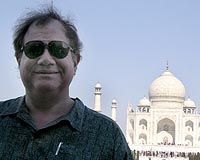| . |  |
. |
Seoul (UPI) Oct 21, 2009 With the U.S. defense chief in Seoul for security talks, a group of scholars and retired military officials have called for a redeployment of tactical nuclear weapons in South Korea to counter North Korea's nuclear drive. They also urged the United States to delay the planned transfer of wartime control of South Korean troops to Seoul beyond 2012, citing lingering threats from the North. U.S. Defense Secretary Robert Gates arrived in Seoul Wednesday for the annual Security Consultative Meeting, which is focused on steps to deter military threats from North Korea. Gates and South Korean Defense Minister Kim Tae-young were expected to use Thursday's security meeting to deliver a "grave warning" against the North's provocative behaviors, Seoul's defense officials said. North Korea conducted a second nuclear test in May following the test-launch of a long-range missile. As the mounting threats from the North fueled a debate on the South's nuclear armament, U.S. President Barack Obama promised in June to extend his country's nuclear umbrella "wide enough to protect" the South, in the first written guarantee by a U.S. president. But Cheon Seong-whun, a researcher at the government-run Korea Institute for National Unification, said the nuclear umbrella was "fragile" and not enough to shield South Korea from North Korea's nuclear threats. A nuclear umbrella also given to Japan by the United States in the past, he said, was a "negative security assurance" that has raised "a question of credibility." If the United States is ready to launch a nuclear strike against the North to protect the South under the umbrella, he explained, it could face risks of retaliatory nuclear attacks on U.S. soil by the North, which is developing long-range missiles designed to carry a nuclear warhead that could hit the continental United States. "There is doubt that the United States could protect Seoul at the risk of nuclear attacks on New York or Los Angeles," Cheon said at a recent forum in Seoul. "The United States should consider redeploying tactical nuclear weapons in South Korea to effectively deter North Korea's nuclear threats." The United States withdrew its tactical nuclear weapons from South Korea under a 1992 inter-Korean accord to make the peninsula nuclear free. The United States has tens of thousands of troops stationed in the South as a deterrent against the North under a mutual defense treaty signed just after the 1950-53 Korean War. Tactical nuclear weapons typically refer to short-range weapons, including land-based missiles with a range of up to 300 miles and air- and sea-launched weapons with a range of around 360 miles. "The United States could link the plan of nuclear weapons deployment to the North's nuclear arsenal programs," Cheon said. "The United States can tell the North to dismantle its nuclear weapons by 2012 or Washington would deploy a nuclear arsenal again in the South." The United States has agreed to hand wartime operational command of South Korean troops to Seoul by April 2012, which has raised security jitters in the South following the North's nuclear and missile tests. South Korea voluntarily put operational control of its military under the U.S.-led U.N. Command shortly after the Korean War broke out in 1950. It took back peacetime operational control in 1994 but wartime operational control remains in the hands of the top U.S. commander in Seoul. Many defense analysts and Korean War veterans have called for a delay in the transfer of wartime control because the security landscape has changed following the North's nuclear and missile tests. War veterans, retired military officers and conservative civic groups have staged signature-collecting campaigns to back their call for a delay in the transition. "The transfer should come only after the North's nuclear weapons programs are fully dismantled," said Park Seh-jik, head of the Korea Veterans Association. Professor Kim Yol-su of Seoul's National Defense University said South Korea should consider the introduction of a nuclear arsenal to address security concerns after the transfer of the wartime command. A military official also said U.S. Forces Korea should have tactical nuclear weapons. Ten tactical nuclear weapons in the South could neutralize the North's nuclear threat, he said. Share This Article With Planet Earth
Related Links Learn about nuclear weapons doctrine and defense at SpaceWar.com Learn about missile defense at SpaceWar.com All about missiles at SpaceWar.com Learn about the Superpowers of the 21st Century at SpaceWar.com
 US scientist faces court over attempt to spy for Israel
US scientist faces court over attempt to spy for IsraelWashington (AFP) Oct 19, 2009 A leading American scientist who has worked for the White House and NASA was expected to appear in court on Tuesday charged with attempting to spy for Israel. Stewart David Nozette, 52, was arrested after a sting operation involving an undercover FBI agent posing as an Israeli agent, the Department of Justice said, adding that there was no wrongdoing by Israel. He is charged with ... read more |
|
| The content herein, unless otherwise known to be public domain, are Copyright 1995-2009 - SpaceDaily. AFP and UPI Wire Stories are copyright Agence France-Presse and United Press International. ESA Portal Reports are copyright European Space Agency. All NASA sourced material is public domain. Additional copyrights may apply in whole or part to other bona fide parties. Advertising does not imply endorsement,agreement or approval of any opinions, statements or information provided by SpaceDaily on any Web page published or hosted by SpaceDaily. Privacy Statement |